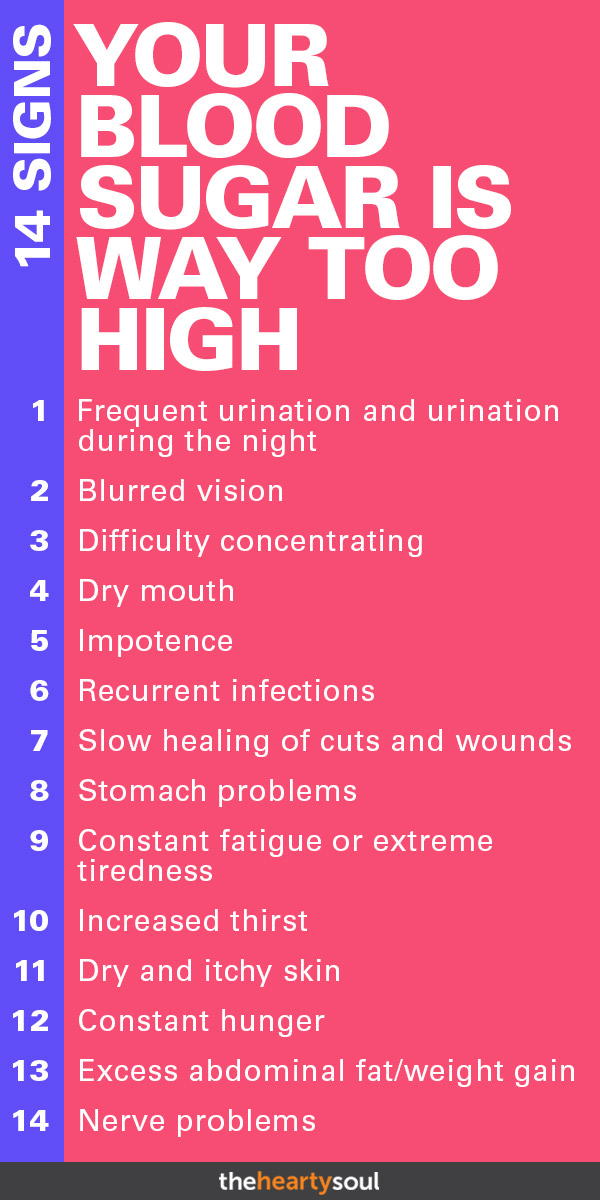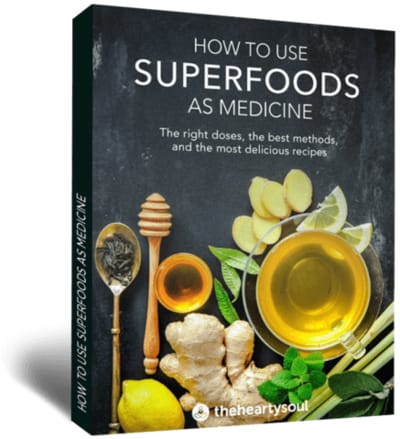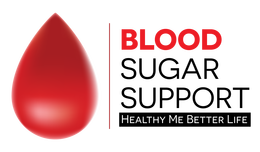
When we hear people discussing high blood sugar levels, the first thing most of us think of is diabetes. Diabetes is an extremely serious condition but long before someone is diagnosed with it, their body will show signs that their blood sugar levels are too high. By educating ourselves on these signs of high blood sugar, we can avoid causing irreversible damage to our bodies.
The consumption of glucose through our diet is the most likely cause of elevated sugar levels. Glucose is distributed to every cell in the body and is an essential nutrient (in the right sized doses). However, when the levels of glucose become too high for too long, serious damage is caused to your kidneys, blood vessels, nerves, and eyes.
Many of the symptoms on this list are often overlooked as signs that you are feeling ‘a little under the weather’ and that they will pass naturally. The reality is that your body is warning you that there is a chemical imbalance that needs rectifying. So keep an eye out for these symptoms:
- Frequent urination and urination during the night
- Blurred vision
- Difficulty concentrating
- Dry mouth
- Impotence
- Recurrent infections
- Slow healing of cuts and wounds
- Stomach problems
- Constant fatigue or extreme tiredness
- Increased thirst
- Dry and itchy skin
- Constant hunger
- Excess abdominal fat/weight gain
- Nerve problems

Three high sugar foods to avoid
If you have either recognized symptoms in yourself or are proactively looking to avoid high blood sugar, certain foods should be removed from your diet immediately. Alongside the obvious advice to avoid processed sweets and fizzy drinks, these three foods should be banned from the house of anyone suffering from high blood sugar.
-
One slice of white bread – GI score 70
Considering that sandwiches require two slices of bread, continuing to eat white bread could be significantly raising your blood sugar levels. Switch it out for brown!
-
Rice cake – GI score 78
Although they can be eaten as a healthy snack if your blood sugar level is low or normal, eating them if you are already suffering from high blood sugar is extremely dangerous.
-
Baked potato – GI score 85
A staple part of many people’s diet, the baked potato will do you no favors if you are monitoring your blood sugar. Avoid at all costs if you are suffering any of the symptoms on the list above.
Three low sugar foods to enjoy
For those of you who are serious about reducing your blood sugar levels and maintaining them at a healthy rate, you should look to manage your diet effectively. That means eating low sugar foods, and the three here are some of the best for the job.
-
Walnuts – GI score 15
Great food for snacks or added to a salad, walnuts are low in sugar and have a range of other health benefits including boosting reproductive health (for men) and heart health.
-
Broccoli – GI score 10
Broccoli might have been many people’s least favorite vegetable as a child, but it actually helps repair the damage caused to your blood vessels by high blood sugar. Healthy and bulky enough to act as a substitute for meat, broccoli is a must in your diet.
-
Eggs – GI score 0
With absolutely no carbohydrates at all, a diabetic could dine on them all day every day if they so pleased (it would probably get pretty boring after a while). When not eaten to excess, eggs are great for your health and certainly won’t elevate your blood sugar.
Keeping tabs on your health is crucial to understanding where the deficiencies or excesses of your diet lie. With so many manufacturers filling their foods with high levels of sugar, it is easy for your body to become overloaded. Don’t assume that consistent issues are natural; it’s probably your body reaching out and trying to tell you something. When it does, don’t ignore it.

A Special Message From Our Founders

Over the past few years of working with health experts all over the world,there’s one major insight we’ve learned.
You don’t have to rely on expensive medications for the rest of yourlives.
Most health problems can often be resolved with a good diet, exercise and a few powerful superfoods. In fact, we’ve gone through hundreds of scientific papers and ‘superfood’ claims and only selected the top 5% that are:
- Backed by scientific research
- Affordable
- Simple to use
We then put this valuable information into the Superfood as Medicine Guide: a 100+ page guide on the 7 most powerful superfoods available, including:
- Exact dosages for every health ailment
- DIY recipes to create your own products
- Simple recipes
